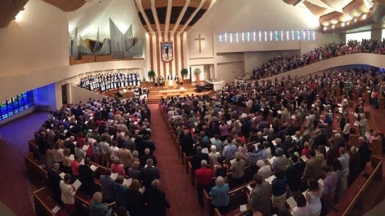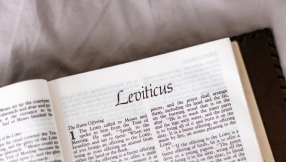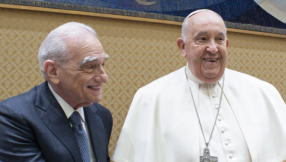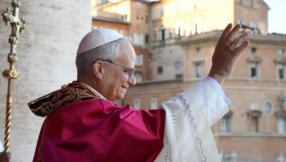The Church of England has said it is "bewildered" by a decision to ban an advertisement featuring The Lord's Prayer from the UK's cinemas.
The Church said the refusal of the country's top cinemas to show the 60 second advert was "plain silly" and could have a "chilling effect" on free speech.
The Church has published a new JustPray as part of its strategy to adapt to the digital age with advice on what prayer is and how to pray. The site also provides a "live prayer" feed of prayers being prayed across the globe via Twitter, Instagram and Vine. The cinema advert promotes the new website and the plan was for it to be shown in cinemas from December 18 before Star Wars: The Force Awakens.
The 60 second advert features Christians from all walks of life praying one line of the Lord's prayer and includes weight lifters, a police officer, a commuter, refugees in a support centre, school children, a mourner at a graveside, a festival goer and the Archbishop of Canterbury, the Most Rev Justin Welby.
The country's three largest cinema chains: Odeon, Cineworld and Vue, who control 80 per cent of cinema screens around the country, have refused to show the advert because they believe it "carries the risk of upsetting, or offending, audiences".

The adverisement was cleared by the Cinema Advertising Authority and British Board of Film Classification but barred by Digital Cinema Media, which handles most cinema advertising in the UK.
Rev Arun Arora, the Church's communications director, said: "The prospect of a multi-generational cultural event offered by the release of Star Wars: The Force Awakens on 18 December, a week before Christmas Day, was too good an opportunity to miss and we are bewildered by the decision of the cinemas.

"The Lord's Prayer is prayed by billions of people across the globe every day and in this country has been part of everyday life for centuries. Prayer permeates every aspect of our culture from pop songs and requiems to daily assemblies and national commemorations. For millions of people in the United Kingdom, prayer is a constant part of their lives whether as part thanksgiving and praise, or as a companion through their darkest hours.
"In one way the decision of the cinemas is just plain silly but the fact that they have insisted upon it makes it rather chilling in terms of limiting free speech. There is still time for the cinemas to change their mind and we would certainly welcome that.
"In the meantime people should visit the site, see the film themselves and make up their own minds as to whether they are upset or offended by it."
Digital Cinema Media, which handles most cinema advertising in the UK, said in a statement to the Church that it has "a policy not to run advertising connected to personal beliefs, specifically those related to politics or religion. Our members have found that showing such advertisements carries the risk of upsetting, or offending, audiences."














